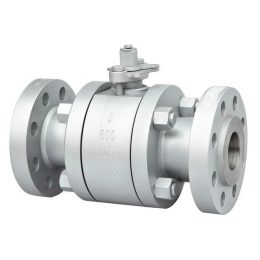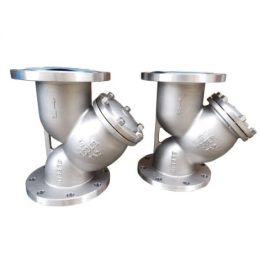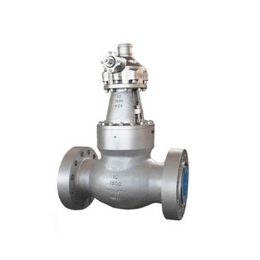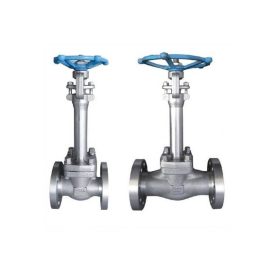10 Ways To Extend The Service Life Of Industrial Valves
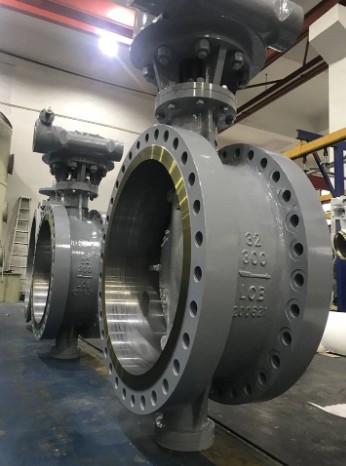
With the current low price of oil, end-users are seeking ways to extend the lifespan of their industrial valves. These methods include proper installation and valve selection. Improper valve installation can result in premature valve failure, leading to higher replacement costs.
It is important to note that industrial valves differ from domestic ones. Domestic valves are small, easy to operate by hand, and seldom require repair. By contrast, industrial valves are used to regulate the flow of chemicals, gases, and slurries.
Proper valve selection and maintenance can significantly prolong the lifespan of industrial valves. Companies can save a substantial amount of money by selecting and maintaining valves correctly.
To extend the lifespan of industrial valves, here are nine ways to achieve this goal:
Understand Industrial Valves
Industrial valves are a critical part of the flow control process. They are used to control the flow of liquids, gases, and other materials through pipelines and other channels. Understanding the basics of valve operation is essential to extending the life of these valuable assets.
Proper Installation Of Industrial Valves
A poorly installed valve can cause the valve to fail sooner than it should, meaning a higher replacement cost. To maximize the service life of your industrial valves, ensure proper installation and maintenance. While valves will eventually require replacement, proper installation and maintenance can extend the lifespan of your valves and save you significant amounts of money.
Right Industrial Valve Selection
The right valve selection can help improve the performance and lifespan of your industrial valves. It is important to choose the right valve for the right media. Fortunately, there are many simple tips to ensure proper valve selection. Once you know the right valve selection, you’ll be well on your way to extended service life and optimal performance.
Coat Them
Coating industrial valves can help extend their service life by reducing wear and tear caused by harsh operating conditions. There are three key methods to increase the service life of industrial valves: coating, hard-facing, and electroplating. Hard-facing coatings are applied by various welding processes, and they are applied at relatively thick layers. High abrasion resistance requires relatively high hard-facing layer thickness. The coating helps to improve the lifespan of the valve.
Clean Them
Cleaning industrial valves is essential to extending their life and serviceability. Cleaning should be done at least once a year or if necessary. If the valves are located in dirty plant areas, it is better to clean them before installation. This way, you can avoid any contamination that may happen. In addition, you can extend the life of your valves and improve production.
Preventive Maintenance
Performing proper preventive maintenance of industrial valves is essential to extending their life. Because valve mechanisms are enclosed, wear and corrosion may not be visible but can compromise the integrity of products and processes. Fortunately, preventive maintenance service programs can be outsourced to qualified technicians who have more experience and training in valve repair and maintenance.
Regular Checkups
Regular checks and maintenance can help you get the most from your equipment. According to manufacturers, you should change valves every six months or three months if they’re being used heavily. Regular inspections will reveal any leaks, cracks, or damaged parts and may prompt repairs. Regular lubrication may also help prolong the life of your industrial valves.
Train Staff
Proper training for the operation, maintenance, and repair of industrial valves can significantly extend their lifespan. Operators and maintenance personnel should be trained to recognize potential problems with valves and to take corrective action when necessary. This training can help prevent costly downtime and equipment failure.
Adjustment and Calibration
Regular adjustment and calibration of industrial valves can significantly improve their lifespan. When a valve is calibrated, it ensures that the valve’s performance is within the specified range. This can help prevent costly downtime and equipment failure. Regular calibration and adjustment of industrial valves can also help prevent them from becoming clogged, corroded, or otherwise damaged.
Proper Storage Proper storage of industrial valves is essential to extending their lifespan. Valves that are not stored properly can become damaged or corroded, which can reduce their effectiveness and lifespan. To prevent damage, it is important to store industrial valves in a dry and clean environment, free of dust and moisture.
Replace Valve Parts
Replacing valve parts can also help extend the lifespan of industrial valves. Over time, valves can become clogged, corroded, or otherwise damaged. Replacing these parts can help improve the valve’s performance and prolong its lifespan. In addition, replacing parts can help prevent leaks, which can cause costly downtime and equipment failure.
Train Your Staff
Finally, training your staff on proper valve selection, installation, and maintenance is crucial to extending the lifespan of industrial valves. By providing your staff with the knowledge and skills necessary to properly maintain industrial valves, you can help prevent costly downtime and equipment failure. This can help your company save money and improve productivity.
Conclusion
Industrial valves are an essential component of many fluid systems. Proper selection, installation, and maintenance of these valves can significantly extend their lifespan and save a company a significant amount of money. By understanding the function and design of industrial valves, properly selecting and installing them, and following maintenance tips such as cleaning, adjustment, and calibration, you can help ensure that your industrial valves last for years to come.
FAQs
- How often should industrial valves be cleaned? Industrial valves should be cleaned at least once a year or as necessary. If the valves are located in dirty plant areas, they should be cleaned before installation to avoid contamination.
- Can industrial valve parts be replaced? Yes, replacing valve parts can help improve the valve’s performance and prolong its lifespan.
- How often should industrial valves be calibrated? Regular calibration and adjustment of industrial valves is important to ensure that their performance is within the specified range. The frequency of calibration and adjustment depends on the type of valve and its usage.
- What is the importance of proper valve selection? Proper valve selection can allow operators to control flow rates, protect the system from overpressure, and more. Choosing the right valve for the right media can help ensure extended service life and optimal performance.
- Why is training staff on valve maintenance important? Training staff on proper valve selection, installation, and maintenance can help prevent costly downtime and equipment failure, ultimately saving a company money and improving productivity.
- The Role Of Safety Valve And Precaution For Use
- Gate Valves Can Be Classified In Two Ways
- How To Choose A Check Valve
- Analysis of Common Problems of Regulating Valve
- Regulating Valve: The Key to Efficient Process Control
- “Understanding the Benefits of Trunnion Ball Valves for Efficient Fluid Regulation”
